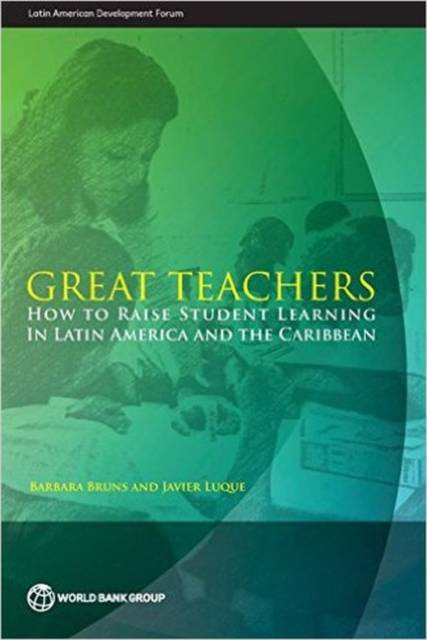
- Retrait gratuit dans votre magasin Club
- 7.000.000 titres dans notre catalogue
- Payer en toute sécurité
- Toujours un magasin près de chez vous
- Retrait gratuit dans votre magasin Club
- 7.000.0000 titres dans notre catalogue
- Payer en toute sécurité
- Toujours un magasin près de chez vous
Great Teachers
how to raise student learning in Latin America and the Caribbean
Barbara Bruns, Javier Luque
67,95 €
+ 135 points
Description
"The seven million teachers of Latin America and the Caribbean (LAC) are the critical actors in the region's efforts to improve education quality and raise student learning levels, which lag far behind those of OECD countries and East Asian countries such as China. This book documents the high economic stakes around teacher quality, benchmarks the current performance of LAC's teachers, and delineates the key issues. These include low standards for entry into teacher training, poor quality training programs that are detached from the realities of the classroom, unattractive career incentives, and weak support for teachers once they are on the job. New research conducted for this report in close to 15,000 classrooms in seven different LAC countries - the largest cross-country study of this kind to date - provides a first-ever insight into how the region's teachers perform inside the classroom. It documents that the average teacher in LAC loses the equivalent of one day of instructional time per week because of inadequate preparation, excessive time on administration (taking attendance, passing out papers) and a surprisingly high share of time physically absent from the classrooms where they should be teaching. Teachers also make limited use of available learning materials, espcially those using information and communications technology (ICT), and are unable to keep the majority of their students engaged. The book sets out the three priority lines of reform needed to produce great teachers in LAC: policies to recruit better teachers; programs to groom teachers and improve their skills once they are in service; and stronger incentives to motivate teachers to perform their best throughout their career. In every area, the book distills the latest evidence from inside and outside the region to provide practical guidance to policymakers in the design of effective programs and sustainable reforms. A final chapter analyzes the politics of recent major teacher reforms in Chile, Peru, Ecuador and Mexico, chronicling the prominent role of teachers' unions and the political and communications strategies that have underpinned successful reforms."
Spécifications
Parties prenantes
- Auteur(s) :
- Editeur:
Contenu
- Nombre de pages :
- 372
- Langue:
- Anglais
- Collection :
Caractéristiques
- EAN:
- 9781464801518
- Date de parution :
- 28-10-14
- Format:
- Livre broché
- Format numérique:
- Trade paperback (VS)
- Dimensions :
- 150 mm x 226 mm
- Poids :
- 576 g

Les avis
Nous publions uniquement les avis qui respectent les conditions requises. Consultez nos conditions pour les avis.






